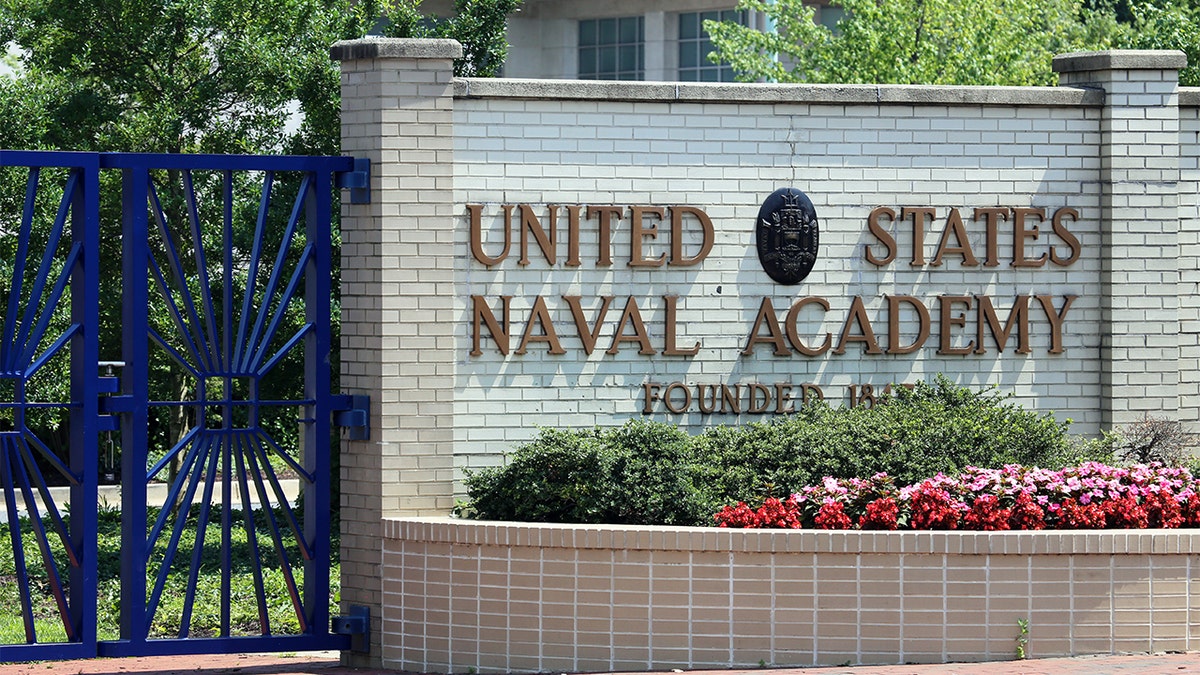Former Navy SEAL who killed Bin Laden discusses lawsuit to ‘restore my reputation’
Fox News Digital spoke to Rob O’Neill about his lawsuit stemming from the night last year he allegedly assaulted a hotel security guard.
The U.S. Navy on Monday will begin to defend its use of race as an admissions factor at the Naval Academy after a Supreme Court case overturning affirmative action left a carve out for service academies.
The same group that brought the case to end affirmative action to the Supreme Court’s attention, Students for Fair Admissions, brought a case against the Naval Academy after the Supreme Court’s ruling explicitly did not address the consideration of race as a factor in admissions at military academies.
The case kicked off Monday and is being heard in Baltimore by District Judge Richard D. Bennett, an appointee of former President George W. Bush, without the assistance of a jury.
NAVY LAUNCHES FIRST SUBMARINE BUILT FOR BOTH GENDERS
Chief Justice John Roberts said factoring race into admissions had "potentially distinct" interests for service academies.

The U.S. Navy on Monday will begin to defend its use of race as an admissions factor at the Naval Academy after a Supreme Court case overturning affirmative action left a carve out for service academies.
A June 2023 Supreme Court ruling banned policies that had been in use for decades that gave preference to Black, Hispanic and other minority students on U.S. campuses. The case specifically involved Harvard and North Carolina but applied broadly to mostly all universities except service academies.
Students for Fair Admissions, led by anti-affirmative action advocate Jason Blum, is arguing the ruling should be extended to service academies, claiming the policies there are discriminatory and violate the principle of equal protection in the U.S. Constitution's Fifth Amendment.
A separate case is playing out in the court system in New York involving the U.S. Military Academy at West Point.

Midshipmen render a salute during the commissioning and graduation ceremony at the U.S. Naval Academy in Annapolis, Maryland, on May 24, 2024.
The Naval Academy asks applicants to identify their race, ethnicity and cultural heritage in its online application but says it only considers those factors in limited circumstances.
"Most candidates are unaffected by the consideration of race," lawyers for the Naval Academy wrote in court filings.
The newly enrolled Class of 2028 includes 642 White students, 178 Hispanic Americans, 132 Asian Americans, 70 African Americans and four Native Americans among a class of nearly 1,200.

Chief Justice John Roberts said factoring race into admissions had "potentially distinct" interests for service academies. ((AP Photo/Will Newton))
NAVY TO SIDELINE 17 VESSELS DUE TO MANPOWER SHORTAGE, OPERATING CREWS WILL BE REDISTRIBUTED: REPORT
"One does not need to conduct a statistical analysis to see the obvious," the lawyers wrote. "Despite the Naval Academy’s substantial efforts to increase the number of minority students over time ... the number of minority students in every class, and in particular Black American and Hispanic students, falls far short of reflecting the nation’s racial and ethnic demographics."
The attorneys argue that "unlike civilian universities, USNA prepares students for war."
Racial diversity is required for national security because it boosts the legitimacy of U.S. fighting forces to the world, fosters cohesion and helps with recruiting, according to the lawyers.
Students for Fair Admissions claims the academy "manipulates admissions outcomes" to mirror the makeup of the U.S. population, which unfairly disadvantages White and Asian students.
CLICK HERE TO GET THE FOX NEWS APP
"The Academy has no justification for using race-based admissions," the group’s lawyers wrote in court filings. "Those admissions are unconstitutional for all other public institutions of higher education."
In December, Bennett denied a bid to temporarily bar the Naval Academy from considering race while the lawsuit awaited trial.














































